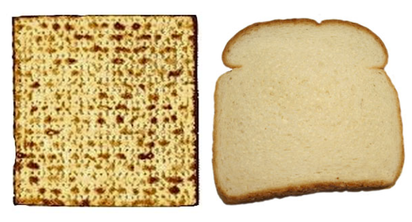
The origin of this holiday is to be found in the book of Numbers where God instructs Moses, "When anyone is ritually unclean by contact with a dead body or on a long journey – you or your descendants – [at the time of] making the Passover offering to Adonai, they shall do so at nightfall on the fourteenth day of the second month. They shall eat matzah and bitter herbs" (Num. 9:10-11).
The Second Passover is, essentially, a cosmic do-over. It says that if you were unable to remember and celebrate the exodus from Egypt on its proper day, you have a chance to do it instead on a day exactly one month later. Those who observe Passover on Pesach Sheni are regarded exactly the same as if they had done so on the proper day of the festival.
What does that tell us about the Torah and about Judaism? Well, for one thing, it tells us that Passover is such an important holiday that the Torah doesn't want anyone to miss it. It also tells us that Judaism is a tradition that is aware of the realities of life and the imperfections of human beings. Sometimes, we don't get things right the first time. Sometimes, we need second chances. In Jewish tradition, there is always the opportunity to make up for our mistakes and try to get it right.
So, let me take the opportunity to say that I have made mistakes in my time. I ask for forgiveness. I couldn't possibly get through life without some second chances.
If you're like me, you've probably made some mistakes in your life, too. If you're like me, you have been blessed with opportunities to apologize, to repair what has been broken, and to start all over again. Rather than treat Second Passover as an obscure and useless holiday, I invite you to consider it as a moment to appreciate with humility and gratitude the opportunity to try again, to find forgiveness for our flaws, and to try even harder the second time to live life with compassion, justice and peace.
Other Posts on This Topic:
Life's Do-Overs
The 29th Day of the Counting of the Omer

 RSS Feed
RSS Feed
